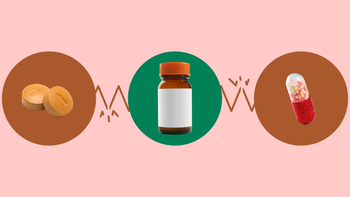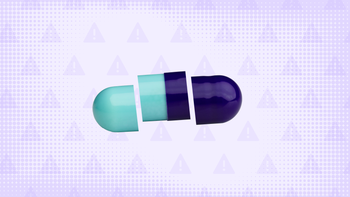GoodRx Guide
Schizophrenia: Your GoodRx Guide
Comprehensive information for you or a loved one — including treatment options and discounts on popular medications.Approximately 24 million people around the world live with schizophrenia. It affects people of all ages, genders, and ethnicities. Around 50% of people with schizophrenia also have a substance use disorder.
Most people with schizophrenia are first diagnosed between the ages of 16 and 30. Recognizing and getting treatment for schizophrenia early on is important. Treatment and support can help you manage your condition and live a healthy life.
Causes
We don’t know exactly what causes schizophrenia. Experts still have much to learn. But they believe several factors play a role:
Genetics: Certain genes may increase your risk of developing schizophrenia. Having a family member with the condition increases your chances of developing it.
Environment: Exposure to certain environmental factors (such as poverty, childhood trauma, and stress) might also play a role in the development of schizophrenia.
Brain differences: Some people with schizophrenia display differences in the structure and function of the brain. More research is needed to fully understand these differences and the roles they may play in schizophrenia.
Keep in mind that having risk factors does not necessarily mean you will have schizophrenia. It just means your risk for this particular mental illness may be higher than other people.
Symptoms
Schizophrenia is an ongoing health condition that can affect many areas of your life. The symptoms can be scary and confusing for those with the condition, as well as those who are close to them. It may be challenging to work and maintain healthy relationships.
People with schizophrenia often have two or more of these symptoms:
Hallucinations: This is when you see, hear, or feel things that are not actually there. Common examples are hearing noises or voices, or seeing people.
Delusions: This means strongly believing in things that are irrational, or not true. Common delusions include the belief that you’re being watched, or that someone else is trying to harm you.
Disorganized thinking and speech: This means the way you talk doesn't make a lot of sense to other people. People with schizophrenia may make up words, use confusing sentences, or repeat nonsensical noises and sounds.
Disorganized or catatonic behavior: Some people with schizophrenia may display strange behavior or movements, such as holding a body posture for an extended period of time. Or they may not react normally to the environment around them.
Decreased interest in daily life: People with schizophrenia may start to withdraw from daily life, including emotionally. This might mean losing interest in activities and relationships, or having trouble keeping up with personal hygiene and other daily tasks.

Diagnosis
Schizophrenia is typically diagnosed by a mental health professional, such as a:
Psychiatrist
Psychologist
Social worker
Therapist
To determine if you have schizophrenia, your provider will gather information about your:
Current symptoms
Medical history
Ability to keep up with daily life
Family medical and mental health history
Your mental health provider may want you to get a full physical exam or complete blood work to rule out other possible health conditions. They may also speak with family members and friends. Loved ones can sometimes provide additional information about your symptoms.
Once your provider has gathered enough information, they can make a decision about whether or not you have schizophrenia, or another similar condition, like schizoaffective disorder.
Medications
Treatment for schizophrenia typically involves psychiatric medications. Some of the most common types of medications used include antipsychotics and some other medications such as antidepressants.
Antipsychotic medications
Antipsychotic medications can help relieve psychotic symptoms like hallucinations and delusions. Antipsychotics are available in pill form or as a monthly injection. Examples include:
Other medications
Depending on your symptoms and response to antipsychotics, your provider may prescribe other medications. These can either help address symptoms of schizophrenia or other mental health conditions.
Examples of other medications your prescriber may suggest include:
Antidepressants such as selective serotonin reuptake inhibitors (SSRIs)
Mood stabilizers such as lithium
Anti-anxiety medications
Therapy and other treatments
Group, individual, and family therapy can all be beneficial for schizophrenia, as well.
Therapy
Different therapy approaches can help people with schizophrenia. In general, therapy helps you learn how to cope with your emotions, maintain healthy relationships, and develop life skills.
Types of therapy with the most evidence for helping people with schizophrenia include:
Assertive community treatment (ACT)
Social learning
Social skills training
Cognitive remediation
Cognitive adaptation training (CAT)
Family support
Providers often encourage family members to participate in therapy sessions to support their loved one’s recovery. Families may learn strategies for improving communication, handling crisis situations, and encouraging a loved one to take their medications.
Attending a family group such as a NAMI Family Support Group can also help family members connect with one another and feel less alone.
Peer support
Peer support groups, in addition to therapy, can be helpful for people with schizophrenia. Groups allow you to connect with others experiencing the same condition, develop social skills, and have structure.
Some clinics or organizations may offer different options for peer support, such as clubs, classes, or social events.
Treatment for substance use disorder
People with schizophrenia are at greater risk for substance use disorders. If you have both schizophrenia and a substance use disorder, then it’s best to receive co-occurring treatment. This type of treatment addresses both addiction and your mental health condition(s) at the same time.
Living with schizophrenia
If you or someone you know is living with schizophrenia, help and support are available. Connecting with a treatment team that you feel comfortable with is important.
Use SAMHSA’s online Behavioral Health Treatment Services Locator to find a treatment program or provider in your area. You can also call SAMHSA’s National Helpline at 1-800-662-HELP (4357). The helpline is free, confidential, and available 24/7.
Connect with these organizations for additional information on living with schizophrenia and other ways to get help:
National Institute of Mental Health: NIMH provides information on mental health disorders, including symptoms, causes, and treatment options.
National Alliance on Mental Illness: NAMI is a nonprofit organization that offers education and support and raises awareness about mental illness. They host online and in-person support groups for people experiencing mental illness and their loved ones.
Mental Health America: MHA is dedicated to serving the needs of people in the community who are living with mental illness. The organization offers information on mental health, living well, getting help, and opportunities for peer support.
Schizophrenia & Psychosis Action Alliance: This nonprofit organization advocates for better access to mental health treatment and support. It also offers virtual and in-person support groups and a free hotline that can assist with referrals for treatment. The hotline is available Monday to Friday from 9AM to 5PM and can be reached at 1-800-493-2094.
References
Adesokun, O. O., et al. (2020). Evaluation of enrollees’ perspectives on the operations of the National Health Insurance Scheme in Nigeria. Journal of Health and Medical Science.
American Psychiatric Association. (2020). What is schizophrenia?
Bartlett, J. (2014). Childhood-onset schizophrenia: What do we really know? Health Psychology and Behavioral Medicine.
Birur, B., et al. (2017). Brain structure, function, and neurochemistry in schizophrenia and bipolar disorder—A systematic review of the magnetic resonance neuroimaging literature. Schizophrenia.
Early Psychosis Intervention. (n.d.). Benefits of early intervention.
Holder, S. D., et al. (2014). Schizophrenia. American Family Physician.
National Alliance on Mental Illness. (n.d.). NAMI family support group.
National Health Service. (2019). Causes - Schizophrenia.
National Institute of Mental Health. (2022). Schizophrenia.
National Institute on Drug Abuse. (2020). Common comorbidities with substance use disorders research report.
Patel, K. R., et al. (2014). Schizophrenia: Overview and treatment options. Pharmacy and Therapeutics.
Society of Clinical Psychology. (n.d.). Treatment target: Schizophrenia and other severe mental illnesses.
Stroup, T. S., et al. (2019). Comparative effectiveness of adjunctive psychotropic medications in patients with schizophrenia. JAMA.
Substance Abuse and Mental Health Services Administration. (n.d.). Behavioral health treatment services locator.
Substance Abuse and Mental Health Services Administration. (2016). Impact of the DSM-IV to DSM-5 changes on the national survey on drug Use and Health [Internet].
Substance Abuse and Mental Health Services Administration. (2022). Living well with schizophrenia.
Tsai, J., et al. (2013). Psychiatric comorbidity among adults with schizophrenia: A latent class analysis. Psychiatry Research.
World Health Organization. (2022). Schizophrenia.





























